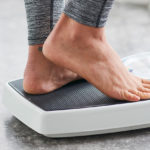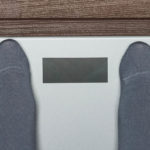July 13, 2022
Sodium is an essential nutrient that plays a vital role in many bodily processes. However, high sodium intake has been linked to various health problems, including high blood pressure, heart disease, and stroke. It may also lead to weight gain and increase your risk for obesity.
The right balance of sodium in your diet can help you stay healthy and avoid weight gain. Here’s a closer look at the link between sodium and weight, along with helpful ways to cut back on sodium in your diet.
Does Sodium Cause Weight Gain?
Sodium is naturally found in whole, healthy foods like fruits, vegetables, nuts, and poultry. All these foods contain low amounts of sodium. However, most people eat too much sodium in the form of sodium chloride or table salt.
Sodium causes your body to retain water. It makes you thirsty, which causes you to drink extra fluids. Then, your body uses these extra fluids to dilute all the excess sodium that your body is unable to flush out in the form of waste. As a result, you may feel and look bloated and gain some water weight.
Water retention that is caused by eating too much salt is often only temporary unless you eat high amounts of salt all the time. Your body fluid levels will usually return to normal within a few days after eating lots of salt.
Additionally, many foods that are high in sodium are processed and high in calories. Pizza, frozen meals, and potato chips are some of the many foods that are high in both sodium and calories. Foods like these are also commonly linked to weight gain.
Is Sodium Bad for Weight Loss?
If you’re trying to lose excess weight, you should try to eat as little sodium as possible. Foods like fruits and vegetables that naturally contain low amounts of sodium are okay to eat. However, foods that contain added salt may cause you to gain even more weight or cause you to retain water.
Why Is Sodium Important?
Sodium helps your body regulate its blood pressure and balances of water and minerals. It transports nutrients to your cells and manages nerve cell function. Sodium also helps your muscles contract and relax.
Your body needs sodium—but only in its pure, natural nutrient form. Your body does not need sodium in the form of table salt.
How Much Sodium Should I Eat Per Day?
According to Harvard University, most Americans consume about 3,400 mg of sodium or 1.5 teaspoons of salt per day. However, we only need about 500 mg per day to stay healthy and help the body function normally.
Harvard adds that the U.S. Dietary Reference Intakes say there is not enough evidence in existence to establish a Recommended Dietary Allowance for sodium. Therefore, a Tolerable Upper Intake Level (UL) has not been established. A UL is the maximum daily intake of a food or nutrient that is unlikely to cause harmful health effects.
Guidelines for Adequate Intakes (AI) of sodium say that males and females aged 14 and older should consume about 1,500 mg of salt per day. The Chronic Disease Risk Reduction (CDRR) Intake says males and females aged 14 and older should consume no more than 2,300 mg of salt per day.
Consult with your doctor to get additional guidance on the amount of sodium you should eat per day based on your health status. Your doctor may even refer you to a nutritionist or dietitian who can work with you more closely to develop a healthy diet and meal plan that contains the right amount of sodium.
Which Foods Are High in Sodium?
The CDC states that more than 40% of the sodium we eat every day comes from only 10 types of food. The top 10 sources of sodium are:
- Breads and rolls
- Pizza
- Sandwiches
- Cold cuts and cured meats, such as pepperoni, salami, and pastrami
- Soups
- Tacos and burritos
- “Savory” snacks, including popcorn, chips, pretzels, snack mixes, and crackers
- Chicken
- Cheese
- Eggs
Other foods that are high in sodium include fast food meals, fried foods, frozen dinners, boxed macaroni and cheese, and other creamy pasta dishes.
How Can I Cut Back on Sodium?
There are lots of steps you can take to cut back on sodium and lose excess weight and avoid gaining excess weight to begin with. The sooner you start reducing your sodium intake, the more effectively you’ll be able to avoid serious health consequences like heart attack and stroke.
Cook From Scratch
Start making most of your meals at home using fresh foods and ingredients. This way, you know exactly how much salt is going into your food.
Try to avoid any processed foods, including side dishes that come in boxes and packaging like scalloped potatoes and stuffing mixes. If you typically grab fast food meals for lunch, start doing meal prep on the weekends and make large pots of soups, chilis, and stews that take only a few minutes to reheat.
Eat Smaller Portions
If you enjoy eating high-sodium foods like popcorn and pizza, eat smaller portions of these foods and fill up on healthier alternatives instead. For example, instead of eating four slices of pizza, limit your intake to one slice and pair it with whole-wheat pasta and spinach.
Use Other Seasonings
Many people add table salt to their meals to enhance or bring out the flavor. However, there are lots of healthy alternatives to salt that can make your meals taste even better. Try using herbs and spices like cilantro, parsley, rosemary, thyme, and paprika to flavor your meals, or citrus fruits like lemon and lime.
Eat Fresh Vegetables versus Canned
Canned vegetables and all other canned goods often contain high amounts of sodium, which is used both as a flavoring and preservative. Stop buying vegetables that come in cans like peas, green beans, carrots, and asparagus. Instead, shop the fresh produce section at your grocery store and stock up on vegetables that are currently in season.
Treating Weight Gain with Healthcare Associates of Texas
Visit our website today to request an appointment if you need help losing excess weight. Our board-certified physicians and healthcare specialists can perform an examination, identify the root cause of your weight gain, and help you find a treatment or solution that works for you.
DISCLAIMER
The information featured in this site is general in nature. The site provides health information designed to complement your personal health management. It does not provide medical advice or health services and is not meant to replace professional advice or imply coverage of specific clinical services or products. The inclusion of links to other web sites does not imply any endorsement of the material on such websites.
Ready to become your healthiest self?
Get tips delivered to your e-mail inbox every month. Let’s get happier and healthier together!


